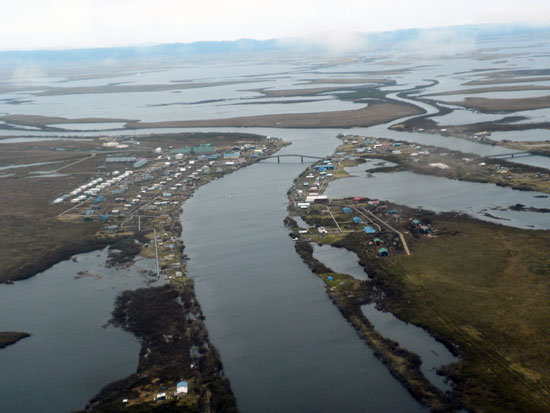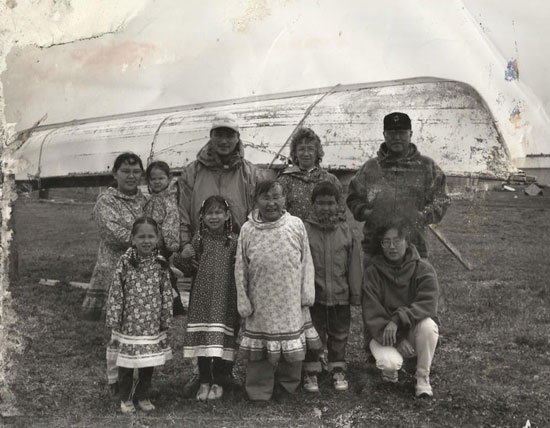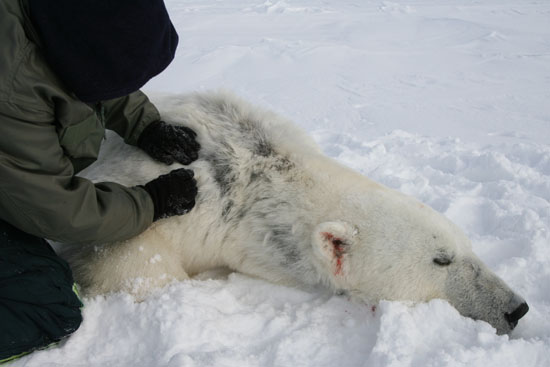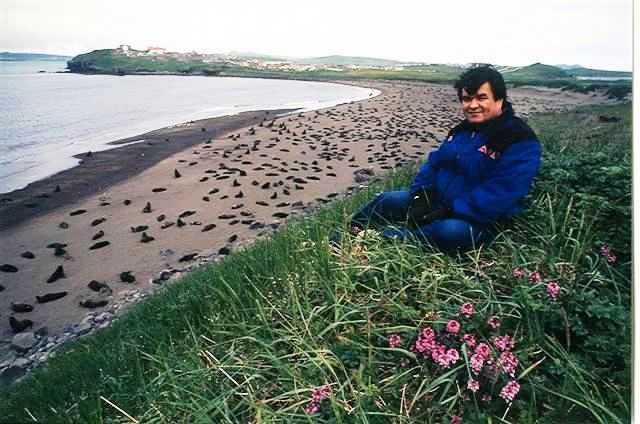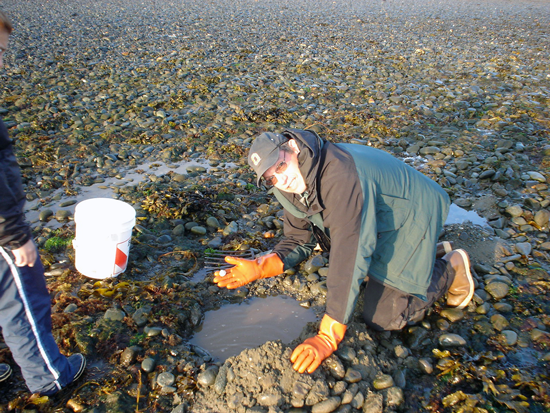Johanna Eurich, KNBA - Anchorage
Shutdown cripples, but doesn’t sink Alaska Marine Science Symposium
The federal shutdown made waves last week at a major conference on Alaska’s marine research that may have repercussions for the coming research season.
AK: Climate Change
Alaska Natives living in some Arctic coastal communities became the nation’s first climate change refugees when the loss of protective ice, exposed them to huge waves and storm surges, making it too dangerous to remain in their homes. But inland villages are also feeling the affects of global warming. Melting permafrost is devastating the delta community of Selawik. To find out how residents are coping, Johanna Eurich visited the village, where the land is sinking and eroding.
St. Lawrence Island Elder Started Studying Climate Change Independently
In the annals of climate change, there’s a story that stands out. It’s about a hobby that created a scientific legacy. Leonard Apangalook has a masters in the traditional ways of his ancestors on the Bering Sea’s remote Saint Lawrence Island. He like other Native hunters noticed the climate was changing but he went further. He stared writing his observations down.
Work Between Native Hunters, Biologists Lays Groundwork For Future
Climate change is causing ice withdrawal and creating stress for animals that live on it. When sick seals started showing up on the beaches off Barrow last July, some saw it as the latest evidence of global warming.
Elders Saw Climate Change Coming Early
Long before climate change dominated headlines, Alaska Native elders noticed that major shifts were taking place in their environment. It is not surprising that people living in remote place depending on wild fish and game should have a sophisticated and intimate knowledge of the weather and its impacts on the wild food they depend on. But the elders went further. Forty years ago, elders advised the young to prepare for hard times.
Marine Toxins Finding New Habitats As Oceans Warm
Climate change is transforming the North. As ocean waters warm fish and marine toxins normally seen down south find new habitat. And that’s having a major impact on the people who gather wild food from the ocean, including Alaska Natives, who eat more wild protein than any other ethnic group in Alaska. So we’re beginning our week long look at how Natives are responding to warmer lands and waters, by heading to a Cook Inlet beach at low tide.


